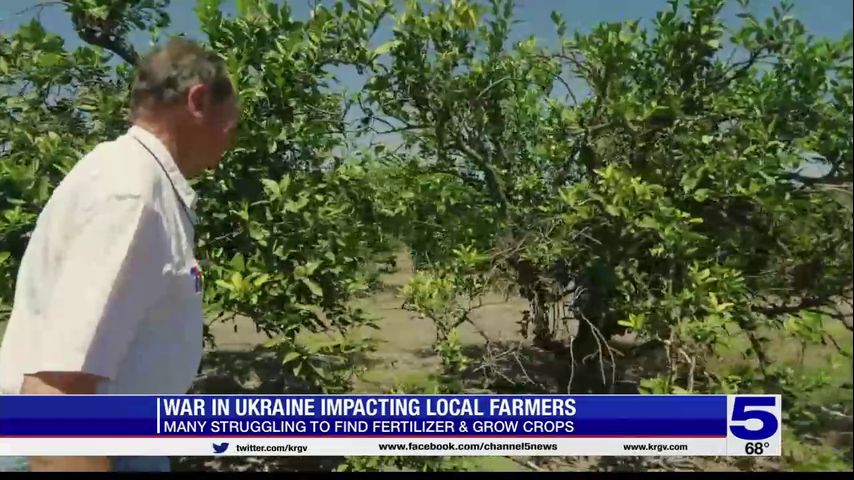Rising fertilizer prices impacting Valley farmers
From the side of the road at his orchard along Mile 2 and a half in Mercedes, Valley farmer Fred Karle knows this year might just be the last for his oranges.
"That's the tough part of about agriculture sometimes," Karle said, picking off dead limbs, some of them still here after last year's historic freeze.
This year, Karle is seeing a fifth of the sellable oranges he’d like to see after not just a freeze, two years of COVID supply hikes, but now, a war half a world away impacting what it'll cost to buy local fertilizer.
RELATED: Rise in gas prices take toll on Valley food trucks
"When the fertilizer and chemicals are like three times more than they were pre-freeze or pre-COVID, well, it just makes it more and more challenging, more and more difficult to figure out what to do," Karle said.
Karle pays about $2,000 per acre to keep up the trees. This spring, he says, will be a loss.
"We know that's not enough to probably pay even half the bill," Karle said.
The war in Ukraine and sanctions against Russia and Belarus are making it harder to get fertilizer.
"Russia and Belarus are the top producers of most of the fertilizers,” said Texas A&M AgriLife Economist Samuel Zapata. “They are the main exporters of fertilizers. So, if you have this big disruption in the supply, it will, of course, have a big impact."
Zapata says the disruption could continue.
"You need to find other alternatives or other suppliers and that is going to be difficult," Zapata said.
At a time when some orchard owners have decided to give up on citrus and redevelop their land altogether, it's unclear what the future holds for Karle.
"Thousands of acres of what I used to farm, or grow citrus on, has turned into subdivisions or strip malls, or some type of retail operation," Karle said.





